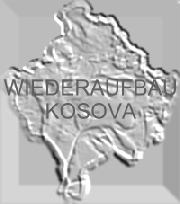TAZ,30.
August 1999
Haben
wir dafür gekämpft?
Im
Kosovo werden nun systematisch Serben terrorisiert
Von
Veton Surroi
Die
systematische Einschüchterung der SerbInnen im Kosovo bringt Schande
über die AlbanerInnen in dieser Provinz und wird weit reichende Folgen
haben. Im Verlauf eines Monats wurde eine alte Frau in ihrem Badezimmer
zu Tode geprügelt, ein zweijähriger Junge wurde verletzt und
seine Mutter erschossen, zwei Jugendliche wurden mit einem Granatwerfer
umgebracht, eine Frau wagt es nicht, öffentlich ihren Namen anzugeben,
aus Angst, dass diejenigen zurückkehren könnten, die versucht
haben, sie zu vergewaltigen. Alle diese Opfer waren Serbinnen und Serben.
So traurig
es ist - dies sind keine Einzelfälle. Viele der im Kosovo verbliebenen
Serben und Serbinnen haben sich in ihren Häusern eingeschlossen, terrorisiert
von dieser Atmosphäre, in der jedes Geräusch beängstigend
wirkt und wo jedes Auto, das in der Straße anhält, das Abholkommando
in den Tod sein könnte.
Da ist der
Fall des älteren Ehepaars, das nichts mehr zu essen hat und das sich
nicht auf die Straße zum Einkaufen wagt, weil die Eheleute wissen,
dass man sie an ihrem schlechten Albanisch als Serben erkennen wird. Ihre
albanischen Nachbarn können ihnen auch keine Lebensmittel geben, denn
sie wurden davor gewarnt, "Serben zu füttern".
Ich weiß,
wie sich die hier verbliebenen SerbInnen, aber auch die Roma fühlen.
Ich weiß es, weil ich zusammen mit zwei Millionen AlbanerInnen vor
nur drei Monaten selbst genau in dieser Lage steckte. Ich kenne ihre Angst.
Wir hörten im Radio, dass Belgrad den Militäreinheiten den Befehl
gegeben habe, alle und jeden zu töten - auch Frauen, Kinder und Alte.
Jedes Auto, das irgendwo anhielt, bedeutete Gefahr. Jedes ungewohnte Geräusch
schien den Tod anzukünden. Von unseren serbischen Nachbarn konnten
wir kaum Hilfe erwarten.
Ich muss gestehen:
Ich schäme mich. Ich schäme mich zu sehen, dass wir Kosovo-Albaner
zum ersten Mal in unserer Geschichte auch zu solch monströsen Taten
fähig sind. Ich kenne natürlich die offensichtliche Entschuldigung,
dass wir durch einen barbarischen Krieg hindurchgegangen sind, in dem Serben
die abscheulichsten Verbrechen begingen. Die Intensität der Gewalt
hat bei vielen Albanern den Wunsch nach Vergeltung hochkommen lassen. Aber
dies ist keine Rechtfertigung.
Jene Serben,
die Verbrechen gegen AlbanerInnen begangen haben, sind längst geflohen.
Mit ihnen haben andere das Kosovo verlassen, weil sie Vergeltung fürchteten
von den Angehörigen der tausende von Menschen, die in Massengräbern
beigesetzt sind. Die heutige Gewalt, mehr als zwei Monate nach Ankunft
der Nato-Truppen, ist mehr als nur eine emotionale Reaktion. Das ist eine
organisierte und systematische Einschüchterung aller SerbInnen aus
dem einzigen Grund, dass sie serbisch sind und deshalb als Kollektiv für
alles verantwortlich gemacht werden, was im Kosovo geschah. Dieses Verhalten
ist faschistisch. Die Bevölkerung des Kosovo hat genau dagegen zehn
Jahre lang gekämpft, zuerst friedlich und dann mit Waffen.
Die Behandlung
der Kosovo-Serben heute bringt Schande über alle Kosovo-Albaner -
nicht nur über jene, die solche Verbrechen begehen. Die Last dieser
Schande werden wir gemeinsam tragen müssen. Sie entehrt uns und unser
eigenes Leid, das noch vor kurzem über die Bildschirme in die ganze
Welt getragen wurde. Und sie entehrt das Andenken an all die kosovo-albanischen
Opfer, die allein wegen ihrer ethnischen Zugehörigkeit ermordet wurden.
Vielleicht
wird uns die internationale Gemeinschaft nicht dafür bestrafen, dass
wir das multiethnische Zusammenleben im Kosovo nicht verteidigt haben.
Schließlich war auch vor dem Krieg die Zahl der Nichtalbaner im Kosovo
etwa so hoch wie jene der Nichtslowenen in Slowenien. Und niemand spricht
heute von einem multiethnischen Slowenien. Trotzdem: Aus Opfern der schlimmsten
Verfolgungen am Ende des Jahrhunderts in Europa wurden wir zu Tätern
und haben zugelassen, dass der Faschismus hier sein Gesicht wieder zeigt.
Wer meint,
die Gewalt werde von alleine enden, wenn nur der letzte Serbe vertrieben
ist, lebt in einer Illusion. Die Gewalt wird sich dann gegen andere AlbanerInnen
richten. Haben wir dafür gekämpft?
Der Autor
ist Herausgeber der kosovo-albanischen Tageszeitung "Koha Ditore", wo dieser
Text erschien. Übersetzt und zur Verfügung gestellt hat ihn die
Medienhilfe Ex-Jugoslawien aus Zürich.


